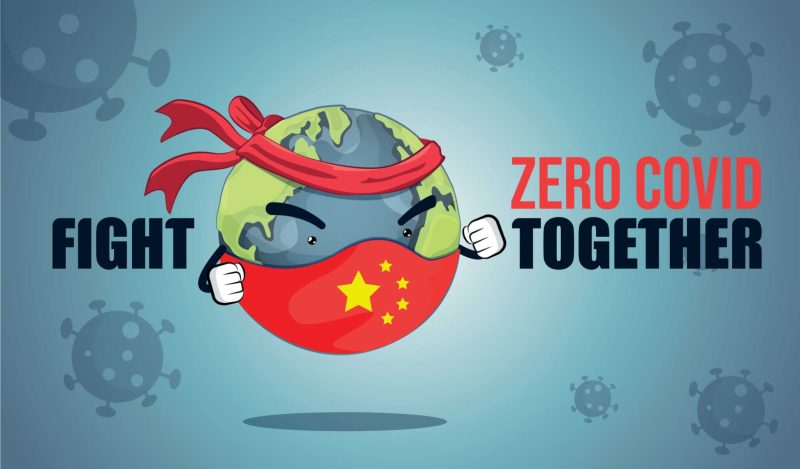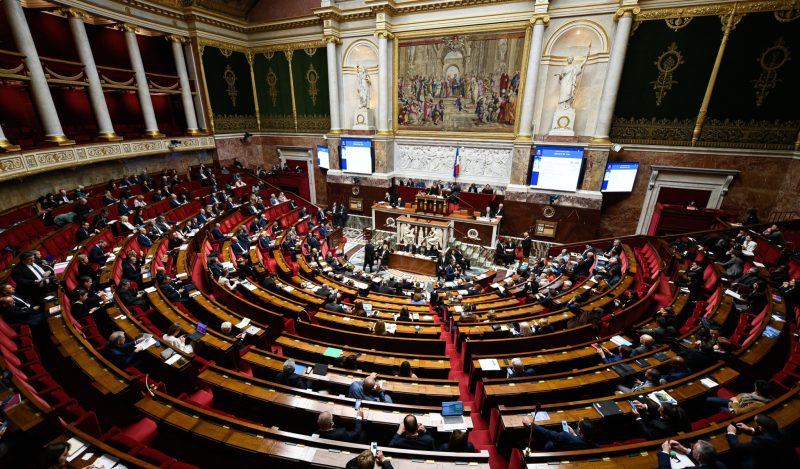Across the political spectrum, voices have risen up in support of the Chinese people who’ve launched protests of unprecedented scale against the Chinese Communist Party’s indefinite Covid lockdown measures.
As well they should. Even by Chinese standards, the lockdowns that Xi Jinping pioneered with the onset of Covid are horrific in terms of their scale, their duration, their depravity, and the new totalitarian surveillance measures to which they’ve led. Anyone who participates in a protest in China runs a risk of being subject to cruel and arbitrary punishment. For ordinary Chinese people to brave that risk in defiance of this new form of inhuman medical tyranny is an act of courage worthy of admiration.
There are notable exceptions to the otherwise widespread support the protesters have received. Apple has been silent about the protests, and had the gall to limit the protesters’ use of a communication service called AirDrop in compliance with the CCP’s demands, even as it threatens to remove Twitter from its app store over Elon Musk’s free speech policy. This comes even after Apple has long ignored requests by FCC officials to remove the Chinese-owned app TikTok from its app store over unprecedented national security concerns. So Apple complies with requests by the Chinese government, but not the United States government. Let that sink in…
Apple is, unfortunately, far from alone in its CCP apologism. Anthony Fauci told CNN that China’s totalitarian lockdowns would be fully justified so long as the purpose was to “get all the people vaccinated.”
Amid protests of unprecedented scale, Fauci tells CNN that China’s totalitarian Covid lockdowns would be fully justified so long as the purpose was to “get all the people vaccinated.”
— LLadany (@lladany) November 29, 2022
“America’s doctor” everyone.pic.twitter.com/FYc7FmXHoq
This kind of apologism for the CCP’s grisly bastardization of “public health” is horrific, especially coming from the man most widely seen as the leader of America’s response to Covid.
But what may be even more galling than this apologism is the widespread support China’s anti-lockdown protesters have received even among those who demonized anti-lockdown protesters in their home countries and wished their lockdowns were more like China’s.
In 2020, the New York Times denounced anti-lockdown protesters as “Anti-Vaxxers, Anticapitalists, Neo-Nazis” and urged the United States to be more like China.

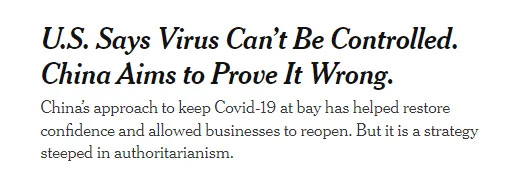
But in 2022, the New York Times admired the bravery of China’s anti-lockdown protesters fighting Xi Jinping’s “unbending approach to the pandemic” that has “hurt businesses and strangled growth.”
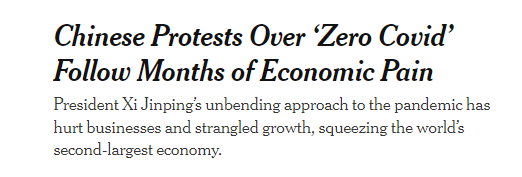
In 2020, CNN published an open letter from “over 1,000 health professionals” denouncing anti-lockdown protests as “rooted in white nationalism” while admiring “China’s Covid success compared to Europe.”


But in 2022, CNN admired China’s anti-lockdown protesters as “young people” who “cry for freedom.”

In 2020, the Washington Post denounced anti-lockdown protesters as “angry” populists who “deeply distrust elites,” and wished the United States was more like China.


But in 2022, the Washington Post celebrated global “demonstrations of solidarity” with China’s anti-lockdown protests.

In 2020, the New Yorker denounced anti-lockdown protesters as “militias against masks” while marveling at how “China controlled the coronavirus.”
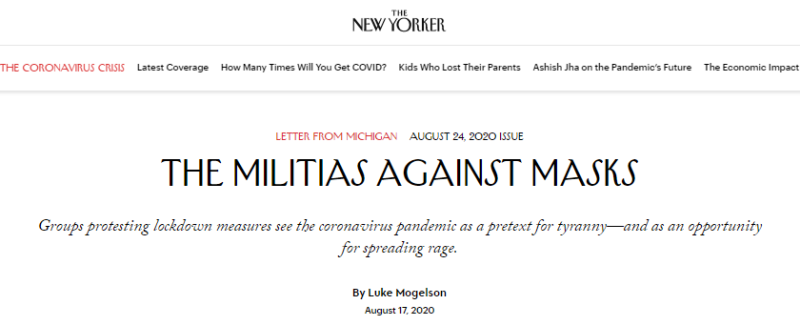
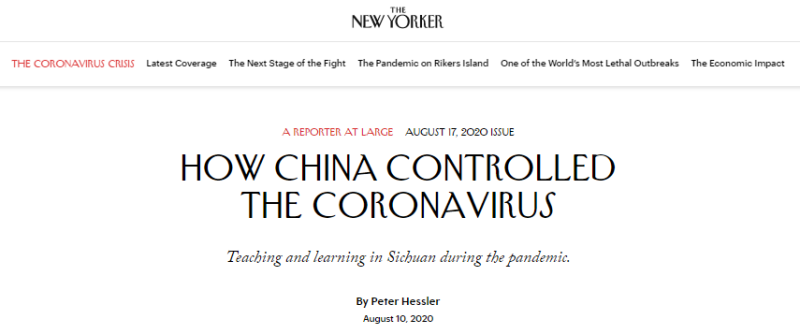
But in 2022, the New Yorker admired the protesters standing up to Xi Jinping.

Earlier this year, Amnesty International issued a statement of concern about Canada’s anti-lockdown Freedom Convoy protests being affiliated with “overtly racist, white supremacist groups,” even as Justin Trudeau invoked the Emergencies Act to crush the protests.

But now, Amnesty International has issued a statement urging the Chinese government not to detain peaceful protesters.

These headlines are, of course, in addition to the hundreds of other commentators, influencers, and health officials, such as NYT journalist Zeynep Tufekci, who used their platforms in 2020 to urge for lockdowns that were even stricter than those their governments imposed, but now join in support for those in China protesting the same policies they were urging their own countries to emulate.
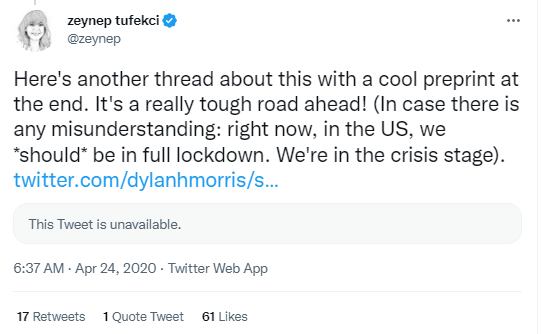
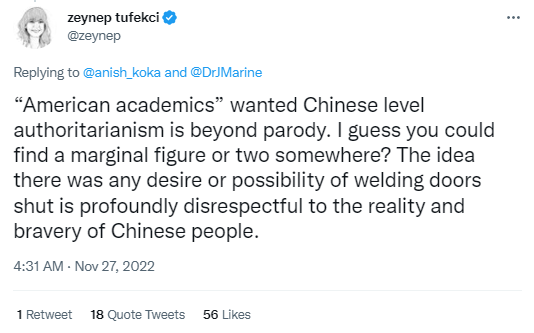
Etymologically, Zeynep’s latter comment makes no sense. Lockdowns had no history in Western public health policy and weren’t part of any democratic country’s pandemic plan prior to Xi Jinping’s lockdown of Wuhan in 2020. Though some countries, such as Italy, imposed lockdowns shortly before the United States, their officials too had simply taken the policy from China. Thus, because no other precedent existed, any call for a “real lockdown” or a “full lockdown” in spring 2020 was inherently a call for a Chinese-style lockdown.
Though by “full lockdown” Zeynep may have intended somewhere in between the strictness of lockdowns in the United States and China, there was no way for any reader to know what that medium was; it existed only in her own head. Thus, the reader is left only with a call for a “full lockdown,” and the only example of a “successful” “full lockdown” that then existed was a full Chinese lockdown.
Zeynep’s latter comment further illustrates the efficacy of what was arguably some of the CCP’s most effective lockdown propaganda in early 2020: The ridiculous viral videos of CCP cadres “welding doors shut” so poor Wuhan residents couldn’t escape.
#Heilongjiang #China : #Police are sealing the front door of the building to prevent people from leaving their homes #WuhanCoronavirus #WuhanVirus #CoronaVirus #Wuhan #WuhanSARS #WuhanPneumonia #ChinaPneumonia #冠狀病毒 #코로나바이러스 #コロナウイルス #ਕੋਰੋਨਾਵਾਇਰਸ #коронавирус pic.twitter.com/lrewT0wLu9
— Gad Cohen (@Gadi3232) February 8, 2020
CCP apologists have argued that these videos prove the CCP was not trying to influence the international response to Covid, because they make the CCP look so bad. But on the contrary, the over-the-top inhumanity of the idea of welding residents’ doors shut was precisely the purpose of this propaganda campaign. The idea had to be so absurd that no decent government would ever actually try it. It thus gave the CCP and its apologists an infinite excuse for why lockdowns “worked” in China and nowhere else—because only China had ever had a “real lockdown” in which residents were welded into their homes.
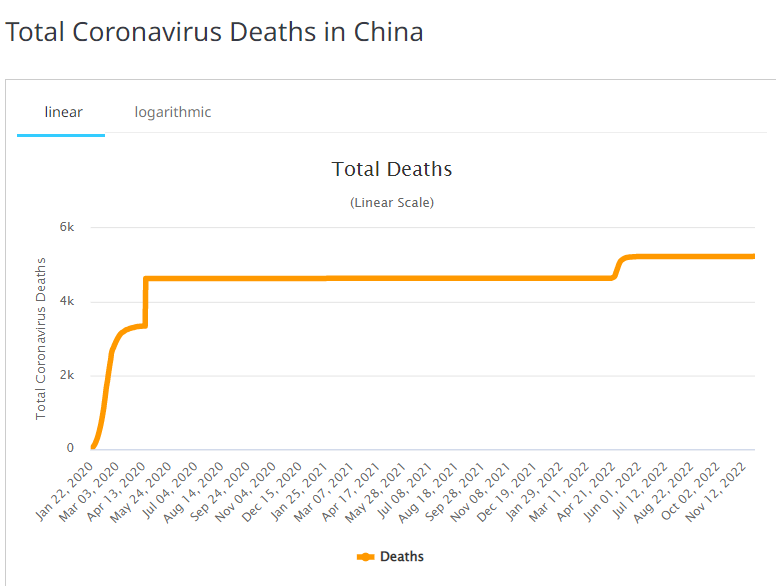
When those with a decent knowledge of geopolitics or a bit of common sense see a graph like this, which looks nothing like that of any other country in the world, from a regime with a long history of faking its data on virtually every topic, the conclusion is obvious: China’s results are fraudulent. But to simple minds, a weld is a strong, durable bond capable of incredible feats, from supporting skyscrapers to spaceships. Surely, if a weld can do all that, then it must be able to stop a ubiquitous respiratory virus?
The entire concept is, of course, utterly asinine. You cannot stop a respiratory virus by indefinitely suspending everyone’s rights. But this idea that lockdowns had worked in China because the CCP had gone so far as to weld people into their homes was invoked over and over again during Covid, creating a limitless “No-True-Scotsman” out for lockdown apologists as to why lockdowns weren’t “working” anywhere except China. Whether COVID-19 cases went up, down, or sideways, the solution would always be the same: “Be more like China.”
The use of this darkly humorous propaganda campaign of welding residents into their homes speaks to two key points as to how Xi Jinping and CCP hawks like him view China’s relationship with the West. The first is that Westerners will never respect the CCP; thus, you can make Westerners believe anything so long as it confirms their prior belief that the CCP is barbaric.
Second, Xi Jinping sees the concepts of democracy and human rights as mere propaganda that Western elites use to further their own self-interest. So long as they approve of a policy, then it’s not a human rights violation, but if they oppose it, then it is. It remains to be seen whether the response to Covid will, in the long run, ultimately advance Xi’s goal of making the world China. But insofar as the intent was to get Western elites to simultaneously support totalitarianism in their own countries while pretending to oppose it in China, then he’s certainly made his point.
Reprinted from the author’s Substack
Published under a Creative Commons Attribution 4.0 International License
For reprints, please set the canonical link back to the original Brownstone Institute Article and Author.
